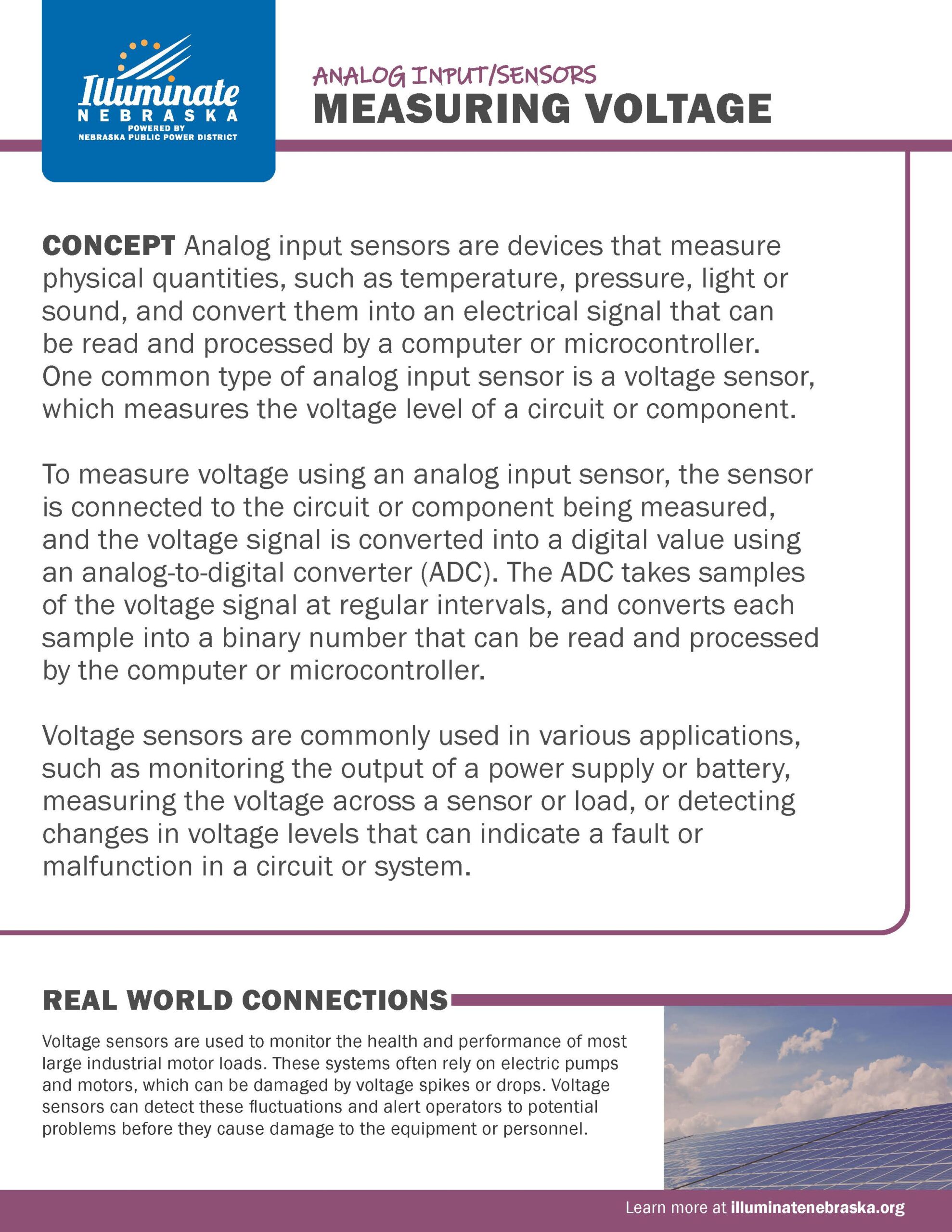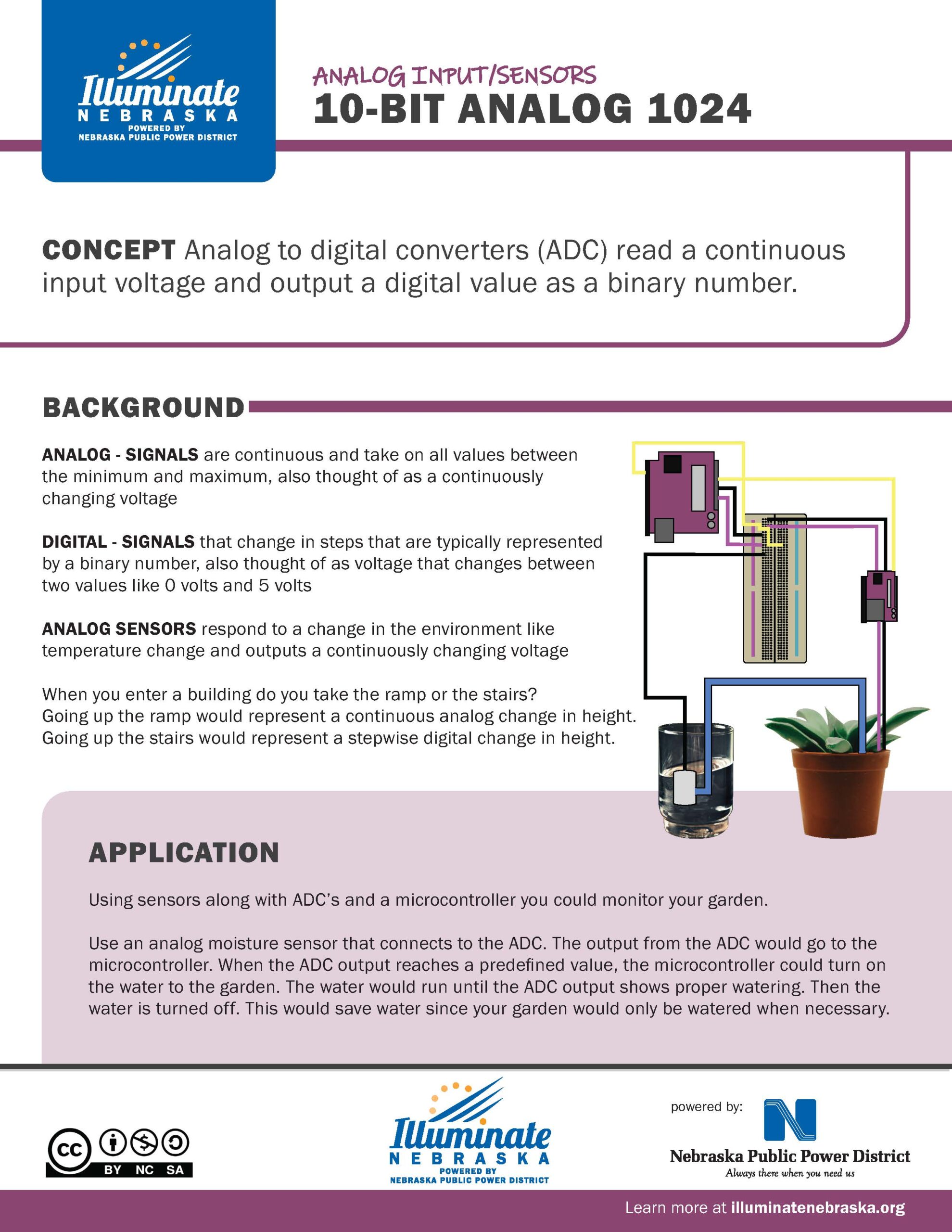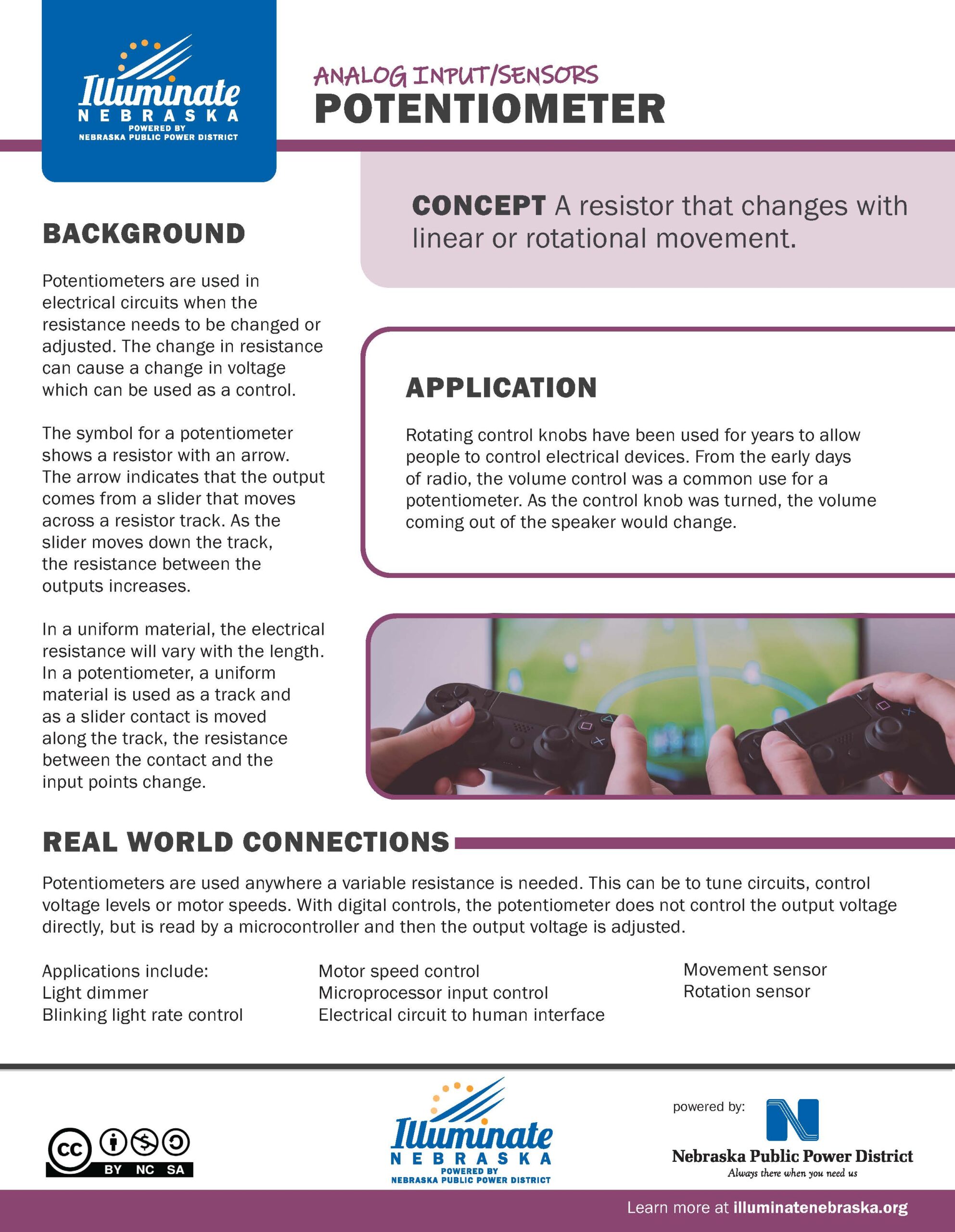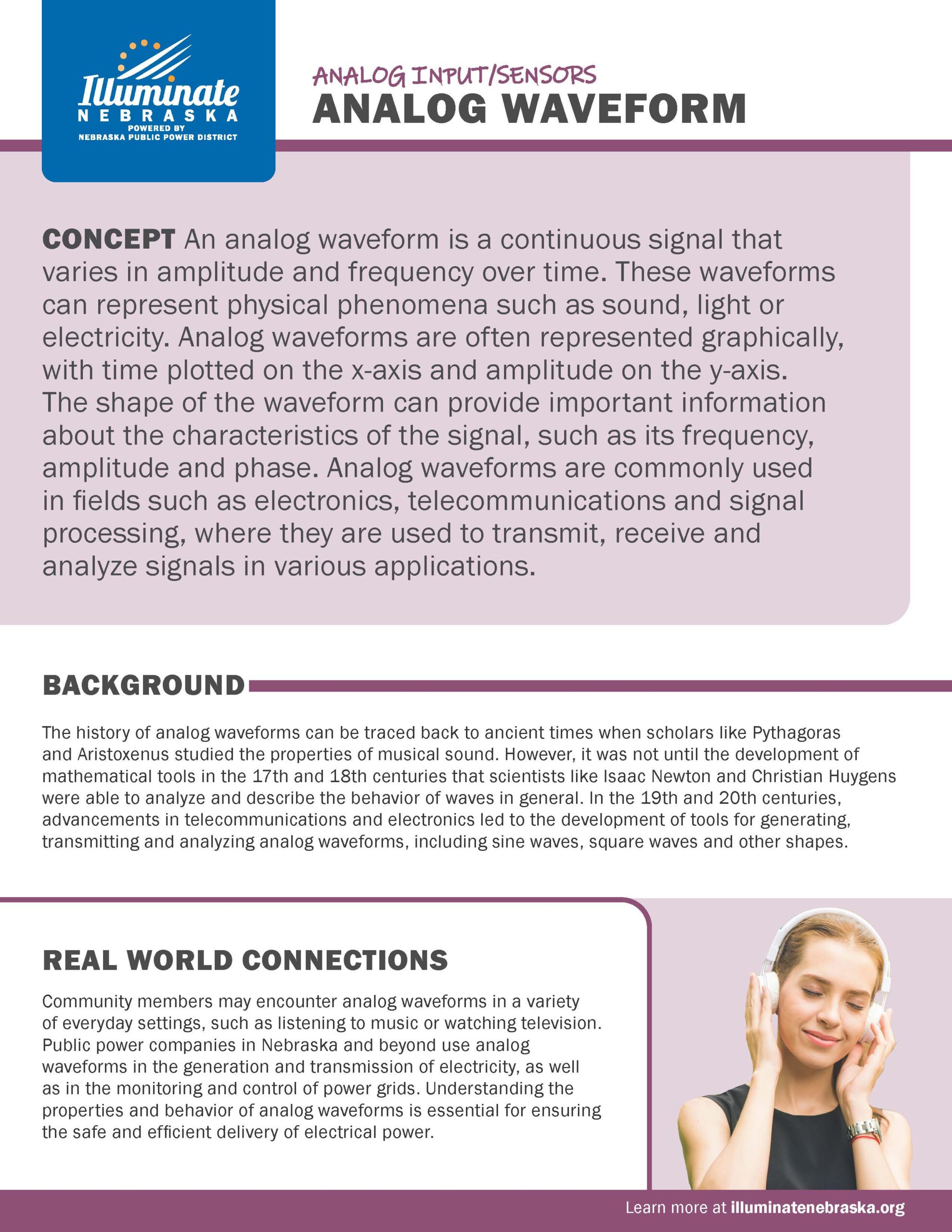Measuring Voltage
Analog input sensors are devices that measure physical quantities, such as temperature, pressure, light or sound, and convert them into an electrical signal that can be read and processed by a computer or microcontroller. One common type of analog input sensor is a voltage sensor, which measures the voltage level of a circuit or component.
10-bit Analog 1024
Analog to digital converters (ADC) read a continuous input voltage and output a digital value as a binary number.
Sensor Types
Sensors measure a physical quantity in the environment.
Potentiometer
A resistor that changes with linear or rotational movement.
Analog Waveform
An analog waveform is a continuous signal that varies in amplitude and frequency over time. These waveforms can represent physical phenomena such as sound, light or electricity. Analog waveforms are often represented graphically, with time plotted on the x-axis and amplitude on the y-axis.





